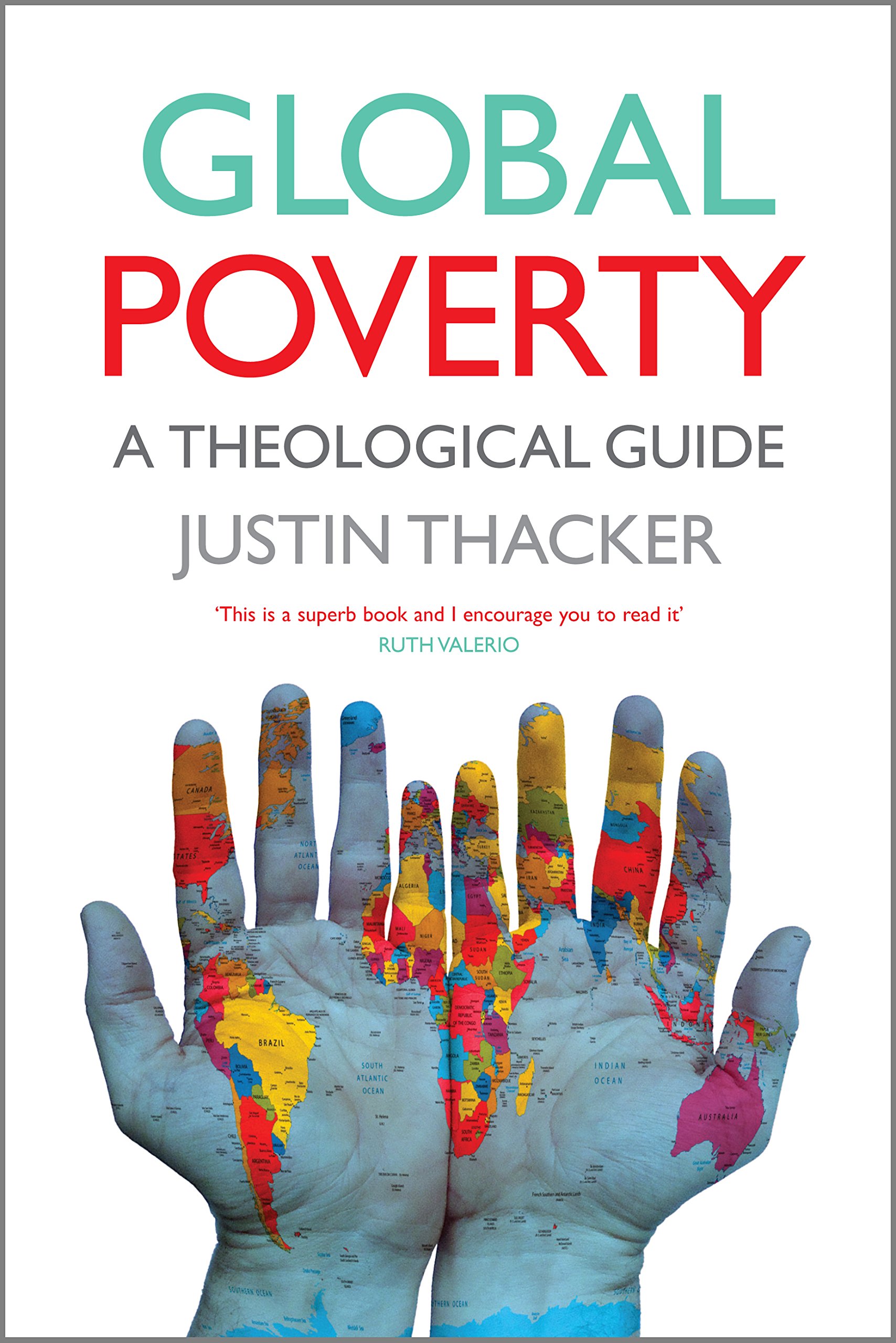Richard Godden: “Global Poverty: A Theological Guide” by Justin Thacker

Dr Justin Thacker describes Global Poverty: A Theological Guide as “In essence … a systematic theology of global poverty” (page 2). He explains that, in terms of the public apologetic content of the book, he has two primary aims: first, to issue a “plea for a reformed capitalism” and, secondly, to suggest “on theological grounds” that aid is not a long-term solution and should rather be viewed as “an essential but temporary measure” (page 4). He states that global poverty is complex and that there are no quick fixes and, in the course of a wide ranging discussion of theological, ethical and economic issues, he endeavours to draw out the implications of the big themes of the Bible, critique the views of other writers, analyse different approaches to development and comment on practical matters. The result is a book that is deeper and more conceptual than many Christian books on poverty. Unfortunately, however, it does not live up to its promise.
The book is arranged around the Biblical themes of creation, fall, Israel and redemption (the inclusion of Israel reflecting Thacker’s adoption of Christopher Wright’s view of the paradigmatic role of ancient Israel and the Old Testament law). In relation to each of these, Thacker seeks to draw out the implications in relation to poverty and our response to it of core Biblical truths.
There is much in the theological analysis that is well founded and helpful but there is also much that is highly contentious. Some of the contentious statements are of little importance (e.g. the statement that the purpose of the Jubilee regulations in the Old Testament “is that the nation might be a holistic blessing to all the nations”, page 116) and some, while of greater theological importance, are not fundamental to Thacker’s argument (e.g. his adoption of the Christus Victor model of atonement, page 148). Others, however, are both important and fundamental (e.g. the statements that “spiritual liberation is one of the fruits of political liberation”, page 109, and that “perhaps sin is not an individual concept at all”, page 56). It is hard to see how such statements can be squared with the Bible. Indeed it is hard to square them with other things that Thacker says (e.g. his critique of liberation theology). The result is that the theological underpinning of his conclusions is shaky.
Thacker’s statements relating to economic issues are also confused. He accepts things that are often ignored by those in Church circles: he recognises that “this side of the new heaven and new earth, there is no perfect and just political and economic system” (page 180), the inherent dignity of work (page 25) and the fact that corruption has a devastating impact on many low income countries (page 89); he acknowledges that inequalities between countries are decreasing and that this decrease is not as a result of the giving of aid (page 240); and he warns against “a victim mentality that denies agency” (page 167). Yet he refers to “systemic issues that keep the poor, poor” (page 65), he appears to believe that the poverty in low income countries is linked to the consumer lifestyles of high income countries (page 83), he asserts that “The core, wealthier nations are not accidentally wealthy but wealthy precisely because the peripheral nations are poor” (page 165) and he devotes considerable space to the alleged impact of “the colonial legacy” (e.g. “at least part of the reason Britain is wealthy today is because we stole from India during the eighteenth and nineteenth centuries”, page 70, and “we enjoy the fruits of … slavery”, page 80). Hence, he comments “I wonder if Cynthia Moe-Lobeda actually speaks the truth when she says, ‘when I donate money to an agency working in Mozambique, dare I consider a gift what is frankly stolen goods?’” (page 76). It is hard to reconcile all these statements. Indeed, one gets the impression that Thacker has found himself compelled to accept some important economic truths yet cannot bring himself to accept their implications.
Despite Thacker’s acknowledgement of the complexity of his subject, much of his analysis is simplistic. He often asserts a particular view without adequately analysing the arguments for and against it, his comments relating to price controls being an obvious example of this (page 119). He also falls into the common trap of leaving people feeling guilty about their behaviour (e.g. for what they buy) on the basis of statements that fail to recognise the complexity of the situation or provide a practical and problem free alternative.
Thacker wants to present his analysis as a via media but it ends up well to the left of centre. He appears to have bought a lot of Thomas Piketty’s analysis and might do well to consider the fact that even left-leaning economists doubt much of what Piketty has said (see After Piketty, which is reviewed on this website). Conversely, he caricatures free market approaches, criticising extreme statements that few Christians would seriously believe (e.g. the suggestions that “individuals sin within a basic structure that is righteous”, page 62, and that it doesn’t matter that we engage in morally questionable behaviour since avoiding it “will make no difference because everyone else is engaging in it anyway”, page 103). He also appears to believe that the only Christian free market approach on offer is that advocated by Wayne Grudem and Barry Asmus in The Poverty of Nations, which he attacks obsessively throughout the book. As the review of The Poverty of Nations on this website makes clear, it is a flawed book and a number (but certainly not all) of Thacker’s criticisms of the views expressed in it are well deserved. However, attacking Grudem and Asmus, does not dispose of the arguments in favour of a free market approach and against some of the things that Thacker advocates.
It is one of his attacks that reveals most clearly Thacker’s defective economics. He summarily dismisses Grudem and Asmus’ view that enlarging a nation’s overall gross domestic product is ultimately the only way of eliminating poverty (page 120) and, later in the book, baldly asserts that “continual economic growth is simply not a sustainable solution for the whole planet; it is only a solution for the rich minority” (page 245). He presumably believes the earth’s resources to be limited and the environmental costs of their use to be unacceptable. What he appears not to have considered is the possibility that human ingenuity (and in particular, scientific and technological advances) will release more resources and satisfactorily mitigate the environmental costs of their use. To recognise this, one only needs to imagine the impact that the harnessing of nuclear fusion would have.
Of course, Thacker is right that there is much more to human flourishing than can be provided by economic growth but, as the past 200 years demonstrate, economic growth is an engine that drives, even a precondition for, many desirable human outcomes.
The above litany of criticisms may give the impression that there is nothing good about Global Poverty but this is not the case. It contains some worthwhile analysis of various issues, such as paternalism, the concept of a moral obligation existing when no moral responsibility for a particular situation exists and the manifestation of sin in societal structures. The final third of the book is also better argued and more insightful than what proceeds it.
Thacker’s critique of secular and theological theories of development is particularly worth reading. It includes a discussion of the theologies of Christian Aid and Tearfund, two high profile UK based Christian aid agencies. Thacker commends the practical work of both of them and has included them among the charities to which he is generously donating the royalties from his book. However, whilst he rightly commends the theological grounding of Tearfund, he is (again rightly) highly critical of that of Christian Aid. It is thus unsurprising that it is the Global Advocacy and Influencing Director of Tearfund, Ruth Valerio, who is quoted on Global Poverty’s cover, saying “This is a superb book and I encourage you to read it”.
It would be nice to be able to agree with Valerio or, at least, to say that the stronger parts of the book outweigh its defects. Sadly, however, this is not the case, those wishing to consider an economically and theologically sound approach to poverty would be well advised to look elsewhere, perhaps starting with some of the other books reviewed on this website.
“Global Poverty: A Theological Guide” by Justin Thacker, was published in 2017 by SCM Press (ISBN 978 0 334 05515 0). 257pp.
Richard Godden is a Lawyer and has been a Partner with Linklaters for over 25 years during which time he has advised on a wide range of transactions and issues in various parts of the world.
Richard’s experience includes his time as Secretary at the UK Takeover Panel and a secondment to Linklaters’ Hong Kong office. He also served as Global Head of Client Sectors, responsible for Linklaters’ industry sector groups, and was a member of the Global Executive Committee.

